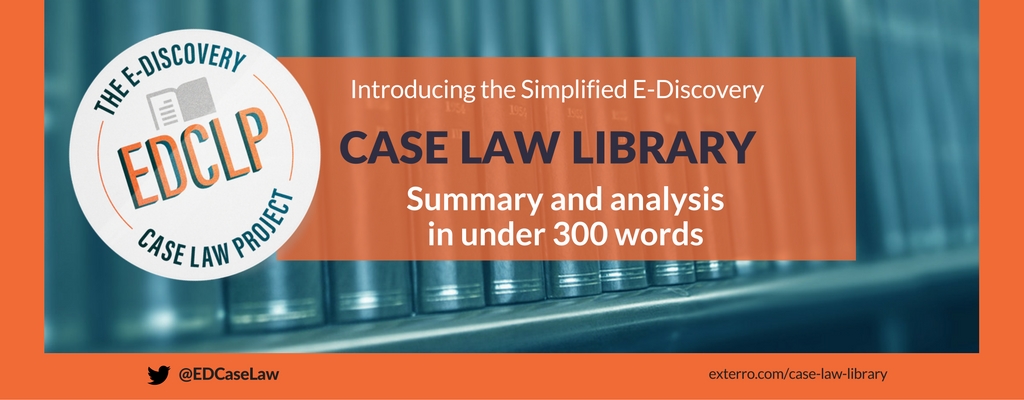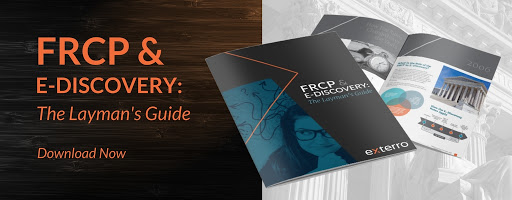E-Discovery
Before Motioning for E-Discovery Sanctions, Exhaust All Alternative Remedies
October 9, 2020

Rollins Ranches, LLC v. Watson (D. S.C. May 22, 2020) re-emphasizes
that when it comes to U.S. litigation, U.S. discovery rules will often
override any foreign privacy law like the GDPR. If you’re going to try
to fight against producing foreign data and want any chance of winning,
make your arguments in accordance with the Aerospatiale 5-factor
balancing test.
Overview:
In this dispute between dog training businesses, the plaintiff sought access to the defendant’s social media and email accounts.
Specifically,
the plaintiff wanted to compel this access to showcase the “history of
admitted defamation and tortious interference was recorded in social
media posts discovered by the Plaintiffs.” Originally, the defendant
permitted access to her accounts but was that ceased when the defendant
made the Facebook page private.
Defendant argued that she did not need to permit access because the United Kingdom Protection Act (i.e. GDPR).
Ruling:
- Rejected Defendant's GDPR Argument. The court
rejected the GDPR argument based on two primary reasons: (1) “[i]t is
well settled that [foreign] statutes do not deprive an American court of
the power to order a party subject to its jurisdiction to produce
evidence even though that act of production may violate that statute”
and (2)”[t]ypically, the party resisting the discovery burden bears the
burden in these cases.
- Defendant Did Not Prove Her Claim.
The defendant offered no evidence that supported the “Defendant’s
position and no further information is provided by Defendant as to the
applicability of the act.
- Court References Aerospatiale.
Often used by courts as the test to determine if foreign laws override
U.S. discovery rules, the Aerospatiale case offers a 5-factor balancing
test when deciding which laws apply.

Expert Opinion from David Cohen, Esq., Chair of E-Discovery Group, Reed Smith LLP
"Parties
resisting discovery based on foreign privacy laws can face an uphill
battle to educate courts about those foreign laws, and associated risks.
Proposing discovery alternatives short of complete non-compliance can
help. Here the pro se defendant’s claims and arguments were found not to
be sufficiently credible or supported."
Case Law Tip:
Download this guide to understand the rules and requirements for e-discovery practices under the FRCP.
